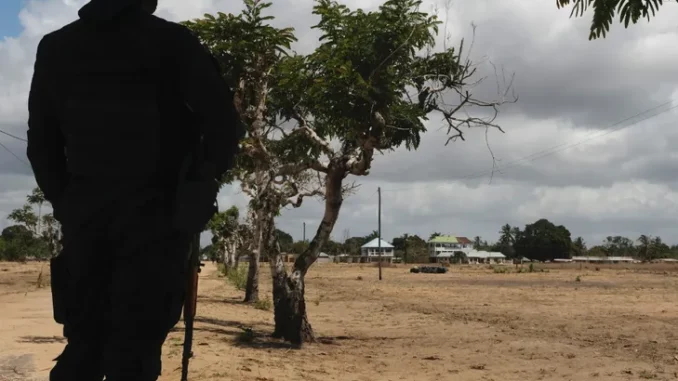
Ruined buildings, empty stores, piles of scrap metal and burnt-out cars where kids come to play: in northern Mozambique, the port city of Mocimboa da Praia is slowly catching its breath, one year after being liberated from the jihadists.
The poor, Muslim-majority province of Cabo Delgado, bordering Tanzania, has been rocked since 2017 by the jihadist rebellion of the Shebab, affiliated with the Islamic State.
In August 2020, after three years of offensives repelled by the Mozambican army, they had set up their headquarters and imposed their terror in Mocimboa.
A year later, the army and Rwandan forces called in by the government of President Filipe Nyusi liberated the small coastal city. Since then, it has been slowly licking its wounds.
It is still rare to see vehicles on the surrounding roads. The jihadists are now multiplying their attacks on civilians in the south of the province. But about 130,000 displaced people have returned to their homes in the northern districts of Palma and Mocimboa, according to the Rwandan army, which controls these two areas.
Dhows have resumed their back-and-forth movement on the Indian Ocean. The beach is once again invaded by fishermen with their arms full of rays and colored fish pulled out of the turquoise water.
Now that the worst is over, the returnees are living in the ruins while waiting for humanitarian aid that is slow to come.
